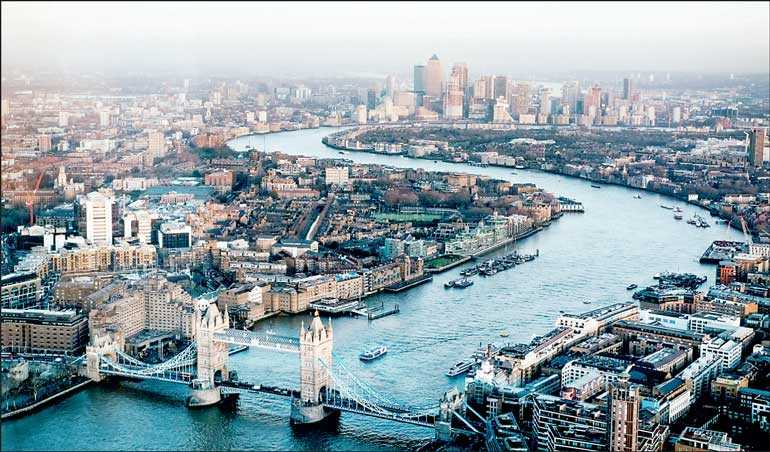Monday Feb 23, 2026
Monday Feb 23, 2026
Wednesday, 12 December 2018 00:00 - - {{hitsCtrl.values.hits}}

LONDON (Reuters): Britain’s economy lost speed in the three months to October, reflecting lower car sales and factory stoppages due to weaker demand that business groups blamed on uncertainty about Brexit.
Gross domestic product growth slowed to 0.4%, in line with a Reuters poll of economists, from a strong 0.6% in the third quarter of 2018.
Monday’s data confirmed that the economy’s strength over the summer represented something of a blip, caused by a boost to consumer spending from an unusually warm summer.
“The latest GDP data is further evidence that the drag effect of persistent Brexit uncertainty and the significant cost pressures faced by consumers and businesses is taking its toll on the UK economy,” Suren Thiru, head of economics at the British Chambers of Commerce, said.
Markets showed little reaction to the data, with their focus on whether Prime Minister Theresa May would go ahead with a parliament vote on her preferred Brexit deal due on Tuesday, which she looks likely to lose heavily.
The Office for National Statistics also highlighted a jump in Britain’s trade deficit for the three months to September compared with previous figures, raising the prospect that third-quarter growth relied more on the domestic economy than thought.
More recent private-sector business surveys have suggested the economy is slowing sharply in the face of uncertainty about the terms on which Britain will leave the European Union. The surveys have shown that fourth-quarter economic growth could be as weak as 0.1%.
If May loses Tuesday’s vote, the options for Brexit range from Britain facing major customs barriers when it leaves the EU in March to fresh national elections or a second referendum on leaving the EU.
Monday’s data do not give updated details of business investment, which fell sharply in the three months to September.
Britain’s economy has slowed since the June 2016 Brexit vote, its annual growth rate slipping from top spot among the Group of Seven group of rich nations to vying with Japan and Italy for bottom place in the rankings.
The slower GDP growth in Monday’s data reflected a hit to the services sector from lower car sales, volatile pharmaceuticals production and reports of factory stoppages due to a lack of demand.
Year-on-year economic growth in October held at September’s 1.5%, against expectations of a slight pick-up, while in October alone GDP rose by 0.1% as expected
Factory output recorded its largest fall since March 2016, down 1.0% on the year.
Britain’s goods trade deficit in October was bigger than expected at 11.8 billion pounds ($15.0 billion), and its total deficit for goods and services for the three months to September was revised up to 9.8 billion pounds from 2.9 billion pounds. The ONS said this revision was likely to erase the 0.8 percentage point positive contribution which net trade would have made to third-quarter GDP growth. The initial estimate of GDP was made primarily by looking at output components of GDP, so the revision did not necessarily imply revised growth would be weaker but did suggest trade played less of a role.
Revised GDP data are due on 21 December.